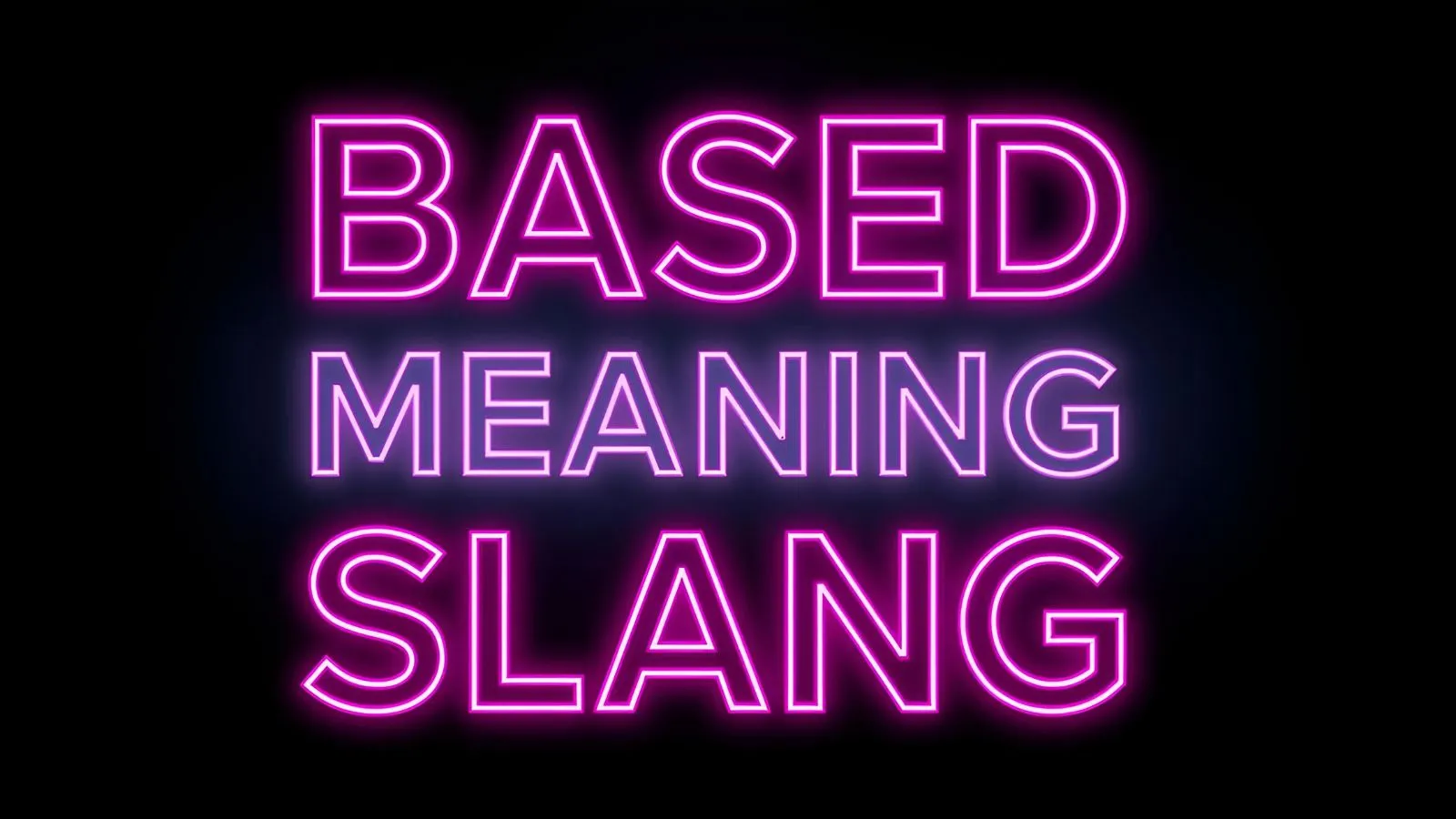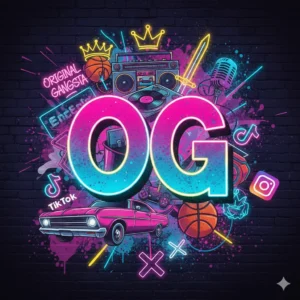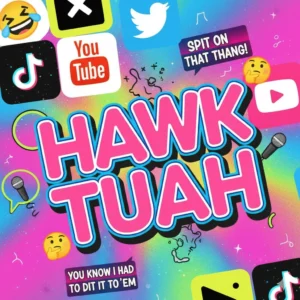Language never stays still. Every generation redefines how words are used, especially in digital culture, where slang evolves at lightning speed. One of the most fascinating examples of this is the slang term “based.”
Originally used in negative contexts decades ago, “based” has shifted into one of the most widely used compliments in modern internet discourse. By 2025, the word has become an established part of online and offline communication, signifying confidence, authenticity, and freedom from social pressure.
But what does “based” really mean in 2025? How do you use it correctly in professional, polite, and casual situations? What are the best alternatives if you want to vary your language? And how can you avoid the common mistakes that new learners make when trying to sound “based”?
This article explores the full depth of “based,” its meanings, cultural background, examples, alternatives, and modern applications. Whether you’re a student, a professional writer, a business communicator, or simply curious about how internet slang works, this guide will give you everything you need to use the word naturally and effectively.
What Does “Based” Mean in Slang?
At its core, “based” means being unapologetically yourself, expressing your views or actions without worrying about whether others approve.
- It’s a term of praise, not an insult.
- It emphasizes confidence, authenticity, and independence of thought.
- It often carries an undertone of respect, even if the speaker doesn’t agree with the opinion itself.
2025 Expanded Definition
In 2025, “based” is now widely understood across platforms, not limited to niche online communities. It is used to mean:
- Authentic – Someone speaking their truth honestly.
- Fearlessly Confident – Acting without concern for social approval.
- Respectable Boldness – Taking a strong stand, even if controversial.
- Admiringly Unapologetic – Praising someone for saying something gutsy.
Example in Conversation
- Casual:
- A: “I don’t care if it’s unpopular, I still think handwritten notes are more meaningful than texts.”
- B: “That’s so based.”
- A: “I don’t care if it’s unpopular, I still think handwritten notes are more meaningful than texts.”
- Online:
- Comment: “I refuse to buy from brands that exploit workers, no matter the trend.”
- Reply: “Absolutely based.”
- Comment: “I refuse to buy from brands that exploit workers, no matter the trend.”
The Evolution of “Based”
To fully grasp the meaning, it’s useful to see how the word has changed:
- 1980s–1990s – “Based” originally referred negatively to people addicted to “base” cocaine.
- 2000s – Rapper Lil B redefined the word positively, encouraging people to embrace authenticity.
- 2010s – The term gained traction on internet forums like 4chan and Reddit.
- 2020s – “Based” became mainstream, appearing in TikTok captions, Twitter replies, and even professional debates.
- 2025 – “Based” is now a normalized slang compliment, understood across multiple age groups, though still primarily popular among younger generations.
When to Use “Based”
The tone of “based” is essential. If you use it in the wrong context, it might come across as sarcastic or forced.
Casual Conversations
- Best for friends, social media, gaming, and informal chats.
- Works as quick affirmation or admiration.
- Example: “She just told the teacher that phones should be allowed in class—so based.”
Professional Settings
- Use with caution. In formal workplaces, slang can sound unprofessional.
- Instead, consider alternatives (explained later) such as “authentic,” “genuine,” or “courageous.”
- Example: Instead of “That’s based,” say “That’s a bold and admirable stance.”
Polite Conversations
- In respectful dialogues (with elders, strangers, or authority figures), avoid slang.
- Use polished alternatives that convey the same meaning.
- Example: Replace “based” with “I respect your honesty” or “That’s admirable.”
10 Alternatives to “Based” (With Contexts & Examples)
Not every situation calls for slang. Sometimes you need professional, polite, or varied expressions. Here are 10 high-quality alternatives to “based,” along with when to use them:
1. Authentic
- Tone: Professional, respectful
- Use When: Highlighting honesty and genuineness.
- Example: “Her writing style is so authentic—it reflects her true personality.”
2. Fearless
- Tone: Admiring, bold
- Use When: Someone takes risks without worrying about criticism.
- Example: “He gave a fearless speech against corruption.”
3. Admirable
- Tone: Polite, formal
- Use When: Acknowledging courageous or respectable behavior.
- Example: “It’s admirable how she stands by her principles.”
4. Unapologetic
- Tone: Neutral, confident
- Use When: Describing someone embracing their identity or opinion.
- Example: “Her unapologetic sense of fashion inspires others to be themselves.”
5. Courageous
- Tone: Professional, strong
- Use When: Someone makes a brave choice in a challenging context.
- Example: “His courageous decision saved the company from collapse.”
6. Genuine
- Tone: Friendly, warm
- Use When: Pointing out sincerity or honesty.
- Example: “He gave a genuine response that impressed the audience.”
7. Bold
- Tone: Casual, professional
- Use When: Describing confident, risk-taking behavior.
- Example: “Launching a new product in this economy is bold.”
8. Principled
- Tone: Formal, respectful
- Use When: Recognizing someone’s strong moral stance.
- Example: “She’s a principled leader who never compromises on ethics.”
9. Independent-Minded
- Tone: Professional, academic
- Use When: Describing free-thinkers who resist peer pressure.
- Example: “He’s an independent-minded researcher who challenges outdated theories.”
10. Real
- Tone: Casual, modern
- Use When: Praising someone’s authenticity in relaxed settings.
- Example: “She kept it real when everyone else was pretending.”
Common Mistakes When Using “Based”
- Using it in professional emails – Slang can reduce credibility.
- Overusing it in conversation – Variety makes language richer.
- Misinterpreting sarcasm – Sometimes “based” is used ironically.
- Forgetting cultural context – Not everyone understands internet slang.
Why “Based” Resonates in 2025
The popularity of “based” isn’t accidental. In a world dominated by social media pressure, curated images, and algorithm-driven opinions, being authentic and unapologetic feels radical. The word “based” captures a cultural hunger for honesty, individuality, and courage.
Practical Guide: Choosing the Best Word
- If casual: Use “based” or “real.”
- If professional: Use “authentic,” “bold,” or “courageous.”
- If polite/respectful: Use “admirable,” “principled,” or “genuine.”
Conclusion
The slang term “based” has transformed from a niche internet phrase into a powerful compliment across the globe in 2025. Its meaning centers on confidence, authenticity, and unapologetic individuality.
But while “based” thrives in casual and online communication, it’s not always suitable for professional or polite contexts.
That’s where alternatives—such as authentic, fearless, admirable, genuine, and courageous—help you adapt your tone.
By mastering both “based” and its alternatives, you gain the flexibility to express respect, admiration, and authenticity across all settings—casual, professional, and formal.










